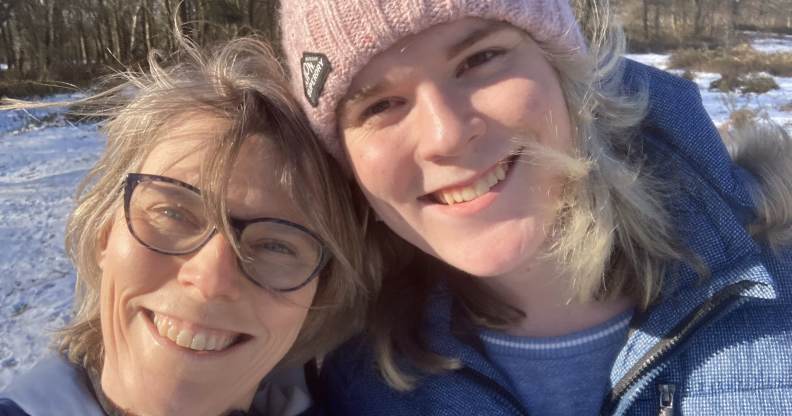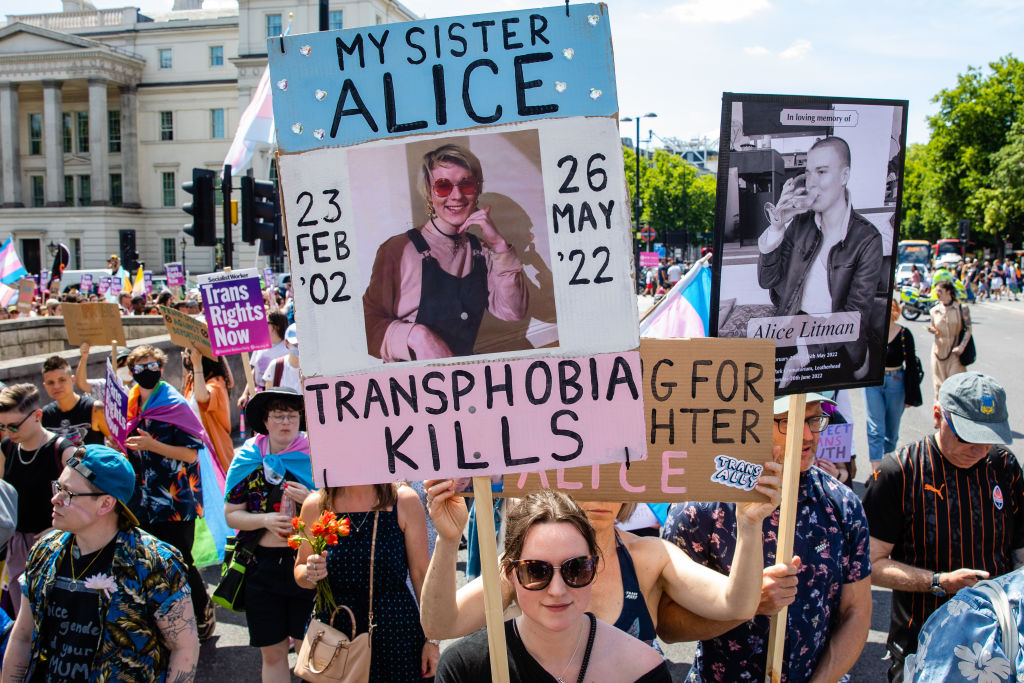Alice Litman inquest to examine impact of gender clinic waiting lists on trans woman’s death

Alice Litman with her mum. (The Litman family)
An inquest into the death of a 20-year-old trans woman is expected to examine the impact of the lengthy waiting lists she experienced while looking for gender-affirming care.
Alice Litman died in May last year, and her family believe the long wait she had to endure played a part.
Litman had been referred to an NHS gender clinic in August 2019, and had been waiting more than 1,000 days for an initial assessment.
An inquest into her death will open on 18 September, and will reportedly examine delays she faced in accessing gender-affirming care, specifically from London’s Tavistock Gender Identity Clinic, according to her family, who described her as a “sweet and gentle person”.
She “died partly because of the inaccessibility of gender-affirming healthcare in the UK”, they claim.
“At the time of her death, Alice had been on the waiting list for 1,023 days. [She] described the years-long wait and the inadequacy of her care as leaving her feeling hopeless and helpless, without an end in sight,” the family said.
“We want the coroner to recognise failings in trans healthcare as a cause of Alice’s death so we can get justice, and push for changes that will improve the lives of other trans people.
“We all deserve to live in dignity, with access to the healthcare we need. We are asking NHS England to prevent future deaths by urgently addressing the crisis in trans healthcare.”
‘Alice faced powerful external barriers to her flourishing’
In an opinion piece for PinkNews two months after Alice’s death, her sister Kate said she can “only hope that the institutions that failed her will answer for [the] loss.”
The family would never have “a straightforward answer [ why Alice] chose death over life”, she added.
“But we keep returning to this fact that Alice faced powerful external barriers to her flourishing.”
Kate also condemned the “broader system of violence towards trans people, with hostility and hatred becoming a routine fixture in the British press in recent years”.

The inquest could also consider the actions of the NHS ‘s adult mental-health services who discharged Alice from treatment for depression and anxiety once she turned 18 and transferred out of Child and Adolescent Mental-Health Services.
Ellie Mae O’Hagan, the head of engagement at the Good Law Project, said in a statement: “[We are] supporting this case because no family should lose someone they love after being left for too long on a waiting list for healthcare.
“Alice Litman was a beloved daughter, sister and friend, who should be looking forward to creating memories, having adventures and building relationships. Instead, her family are grieving her loss.
“We call on the coroner to do the right thing and acknowledge that the terrible time Alice was forced to wait for care from the gender-identity clinic was a cause of her death. We don’t want any other families to go through this.”
In February, when the inquest was initially announced, BBC News reported that the Tavistock and Portman NHS Foundation Trust, where the clinic is based, said it was “deeply saddened” by the death, but it was “not appropriate to comment while the inquest is ongoing”.
PinkNews has contacted the Tavistock and Portman NHS Foundation Trust for comment.
Suicide is preventable. Readers who are affected by the issues raised in this story are encouraged to contact Samaritans on 116 123 (www.samaritans.org), or Mind on 0300 123 3393 (www.mind.org.uk). Readers in the US are encouraged to contact the National Suicide Prevention Line on 1-800-273-8255.

